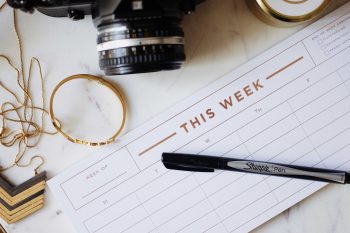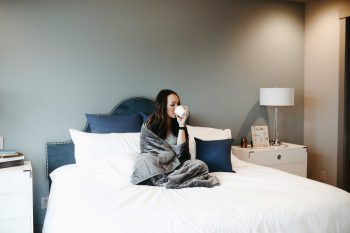We all strive to make #WorkLifeBalance part of our daily practice, but is it? With four years of undergrad, four years of med school, and a whole lot more years of residency, hours spent studying are what fill all the cracks between classes, clinical rotations, and the like. Studying becomes your personal mantra—your bread-and-butter—your life-force. You may feel duty-bound, mired by the responsibilities and expectations tied to your goal to become a DO. And as these responsibilities ramp up, there is the very real potential that the time and energy you once had for your passions and hobbies may be at an all-time low.
We all strive to make #WorkLifeBalance part of our daily practice, but is it? With four years of undergrad, four years of med school, and a whole lot more years of residency, hours spent studying are what fill all the cracks between classes, clinical rotations, and the like. Studying becomes your personal mantra—your bread-and-butter—your life-force. You may feel duty-bound, mired by the responsibilities and expectations tied to your goal to become a DO. And as these responsibilities ramp up, there is the very real potential that the time and energy you once had for your passions and hobbies may be at an all-time low.
#DOLOVE

We all strive to make #WorkLifeBalance part of our daily practice, but is it? With four years of undergrad, four years of med school, and a whole lot more years of residency, hours spent studying are what fill all the cracks between classes, clinical rotations, and the like. Studying becomes your personal mantra—your bread-and-butter—your life-force. You may feel duty-bound, mired by the responsibilities and expectations tied to your goal to become a DO. And as these responsibilities ramp up, there is the very real potential that the time and energy you once had for your passions and hobbies may be at an all-time low.
The brain-sweat, tears, and hard work that are vital on your journey to DO licensure does not need to evoke feelings of guilt for not studying every hour of the day. So let’s tackle the study burnout and help you find ways to carve out time to keep doing what you love. Here’s how:

Schedule it
Perhaps most of your life is meticulously mapped on a calendar, moment by moment—classes, clinical rotations, crazy amounts of studying, eating, sleeping, laundry, brushing your teeth, more studying. But your hobbies and passions are just as important to your well-being and your mental headspace, and they deserve dedicated time on your calendar too. Yes, yes, we know, there are only so many hours in a day, but who says your passions need to take hours? Take a 10-minute run (instead of your normal 10-mile jog), cook a 15-minute meal (instead of a multi-course masterpiece), read one chapter of a fiction book (instead of the whole thing), doodle for 10 minutes…you get the idea. Your hobbies and passions, just in smaller doses. Clear that brilliant brain of yours, nourish yourself with things that bring you joy, and then get back to the books!

Stop canceling
You’ve made the appointment, but are you going to show up? This is the tough part because we all know how easy it is to cancel, especially when you are too tired, too busy, and too guilty (when you think you should be studying even more than you are). Showing up for yourself amidst COMLEX-USA exam prep might seem like a joke, but doing what you love is a big part of recharging and fueling what comes next. Be confident in the schedule you create and the choices you make, more importantly when they involve taking care of you. If you don’t do it, no one else is going to do it for you.

Mix it up.
It’s easy to shelve the hobbies you’ve had for a long time. While they still bring you joy, they don’t give you the same butterflies-in-your-stomach feeling they did years ago. Maybe it’s time to try something new: rock climbing, origami, ballroom dancing. Step out of your comfort zone and make use of an entirely different part of your brain or body. Getting out of your study-cave and into something new might also help ignite some of those old passions, clear your mind, and help energize you so you can get back to the studying. Plus, adding to your arsenal of interests may eventually help you connect and empathize better with your patients as well.
When studying starts to bleed into the things you love, take a step back and remind yourself that you’re a person before you are a physician—and even more important: you’re a person even after you become one. During this month of passion and #DOLove, encourage yourself, empower yourself, and break through your schedule to keep doing the things that bring you joy and keep you, you.




